Another Timbre TimHarrisonbre
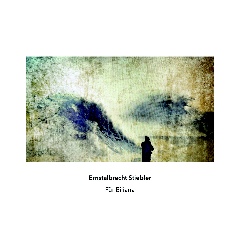
at155 Ernstalbrecht Stiebler - ‘Für Biliana’
Four chamber works for strings by the veteran German composer.
Played by Biliana Voutchkova (violin), Michael Rauter (cello), Nurit Stark (viola)
1. ‘Für Biliana’ (2015) Biliana Voutchkova, violin Youtube extract
2. ‘Glissando’ (2016) Biliana Voutchkova, violin
3. ‘Extension’ (1963) Biliana Voutchkova, violin Nurit Stark, viola Michael Rauter, cello
4. ‘Duo 4 / Parallelen’ (2007) Biliana Voutchkova, violin Michael Rauter, cello Youtube extract
Recorded at Bulgarian National Radio, July 2019
Interview with Ernstalbrecht Stiebler
I discovered your music in the mid-90’s thanks to the Hat Art label, and was impressed
by its quiet soundworld. How would you say your music has changed or developed since
that time?
ES: I think my music now is more concentrated, in a sense even more minimal, with fewer tones, and creating a deeper sound space (I hope!)
Since the mid-90’s an appreciation of quietude has become more widespread, with, for example, the emergence of the Wandelweiser collective, ‘lowercase improvisation’, and a big upsurge of interest in Feldman’s music. Do you feel a close affinity with those movements, or have you remained aside from that?
ES: I certainly feel close to the movements that you mention, but in the same way as with family relatives where you can also have differences, sometimes very subtle ones. Feldman and Scelsi are very important for me, though perhaps I have developed in a slightly different direction - an inner development looking for a larger traditional frame, with octaves, fifths, elements of tonality, all within a minimal structure.
In relation to the CD, I feel that there is a striking but interesting contrast in style between the 1963 trio piece (Extension für Streichtrio) and the more recent pieces that date from 40-50 years later. Do you feel the same sense of contrast?
ES: Not really, no. For me the pieces feel inwardly similar. For example, the long repetitions in ‘Extension’ still feel very close to me now – and they were avant-garde at that time. The expressiveness and sensitivity that is evident in ‘Extension’ is for me an aspect of youth – and I accept this without feeling any inner distance. So, for example, the tremolos in ‘Extension’ are not something that I’ve continued using in later pieces, but the inner feeling is the same, and the repetitions and sense of concentration are there in all of the pieces, I think. For me the pieces from both periods demonstrate an inner connection – even at 86 years old I am bit young, a bit - but also perhaps I am a ‘traditionalist’ (not a ‘modernsky’).
Interview with Biliana Voutchkova
How did you first meet Ernstalbrecht?
BV: Ernstalbrecht was the first composer I started working with in Berlin, in 2007, even before I moved to the city in 2008. He was already working with my dear colleague and friend, the cellist Agnieszka Dziubak, who first introduced us to each other. We met while we were working on the new violin and cello duo ‘4 Parallelen’, which we premiered in 2008. The relationship strengthened, we kept in touch and became friends with an open mutual interest in continuing our work together.
How did this CD project come about?
BV: I walked a long pathway to get to this release. Me and Ernstalbrecht often spoke about a new violin solo, and in 2015 he surprised me with a phone call telling me that he had written "Für Biliana". He said he’d like to meet up for a first read through. I was really touched, and I loved the piece right away. Shortly after playing the premiere, Ernstalbrecht was motivated to write another solo for me, presenting a different set of ideas. So "Glissando" was born in 2016, and it hasn't even had its live premiere yet...
In 2018 I had the enormous pleasure of discovering and playing the string trio ‘Extension’ at a concert of Solistenensemble Kaleidoskop. I played it with Michael Rauter and Nurit Stark, and this is the trio which recorded it for the CD. The piece was part of a programme which included other larger, newer string ensemble works. It was like a jewel in the midst of the evening, a memorable collaboration for our trio and Ernstalbrecht.
That evening I felt a first strong impulse to find a way to record and produce a CD including the trio and the other pieces. I worked hard for two years to find a good studio for the recordings, to keep the group and the repertoire as I envisioned them, and to find the right label for the release. I couldn't be happier that this is now a reality. My gratitude is endless for the best outcome I could have possibly wished for.
As I said to Ernstalbrecht, I feel that there is a big contrast in style between ‘Extension’ and the more recent pieces. How does this contrast strike you, and why did you want to present the two together on a single disc?
BV: The contrast between the old and newer compositions is fascinating but for me actually not too marked or obvious. I can hear the same strong individual voice, the reduction of means, the repetition and re-occurrence of certain intervals as elements in all the pieces. In the later pieces one can sense a lot more patience, continuity without need of change, stretching the form to more extremes (especially in the ‘4 Parallelen’ duo), while more surprises, outbursts, different "sections" and sharp curves are evident in the early trio. Of course, all of it presented with great elegance, Stiebler-style.
As I said earlier, the idea of releasing the selected pieces on a single disc came to me in relation to the ‘Extension’ trio, the last of the works that I discovered. It was the cherry on top of the cake, the missing part needed to complete a fabulous composer's portrait with masterpieces embracing a period of over 50 years. Pieces that I love playing and hearing, and which make sense dramaturgically to me as a whole – and pieces that have never been released before, except for one recording of the trio by Ensemble Recherche many years ago.
The music was recorded at Bulgarian National Radio, the country you come from. Could you tell us about your experiences growing up there and if that has affected your approach to new and experimental music?
BV: Oh well, this has to be a full interview if I want to say everything about it. Musically speaking, growing up in Bulgaria everything was related only to classical music. In the full-time music school where I was enrolled from age 5, there was strong emphasis on preparation for the professional classical music world. I am grateful for this education and the early start that placed me on stage as a soloist from a very early age. With some luck, I took this career to the maximum possible level by the time I was 17-18 years old. But I was hungry to discover more, to grow further, longing to find out what else be. This was communist Bulgaria, pre-internet times, and we had absolutely no information about the world of new and experimental music. Mavericks such as John Cage, Morton Feldman, György Ligeti etc. were completely unknown to me, to all of us in music school - not to mention leading figures from other musical genres. I did hear some records which somehow found their way into the country through magical pathways, most of them coming from the jazz world - Eric Dolphy or Miles Davis for example. Anyway, I intuitively knew that I needed to move further and, being lucky again, in 1991 I found myself in the USA where I completed my further education immediately after my high school graduation. There I searched and slowly discovered the wide, vibrant, colourful, multi-genre world of new music, in all its endless and creative forms. It was mind-blowing, and so satisfying. After a few years, in New York City, where I did my Masters, I began to understand something of my calling. I started improvising and consciously decided to pursue a career in contemporary / experimental music. It was and is a path that came entirely naturally to me, and one that keeps me alert and ever open towards new and unknown territories.
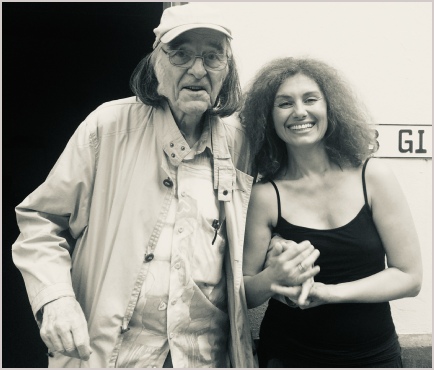
Ernstalbrecht Stiebler & Biliana Voutchkova
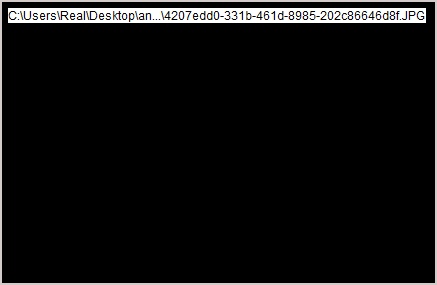
Michael Rauter, Nurit Stark & Biliana Voutchkova
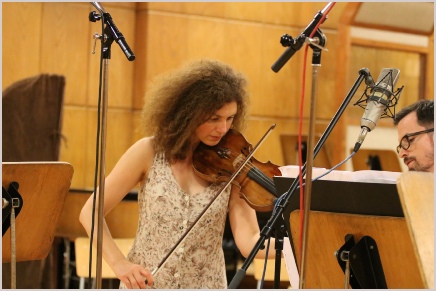
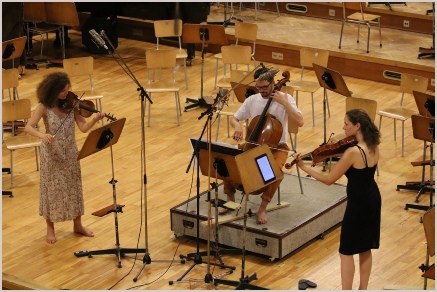
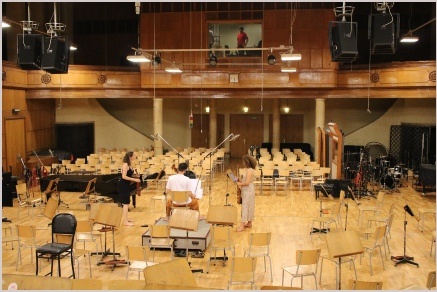
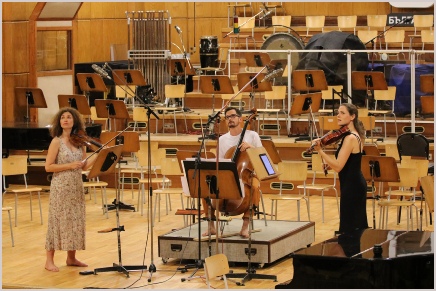
Recording at Bulgarian National Radio,
Photos by Zdravko Petrov, with thanks